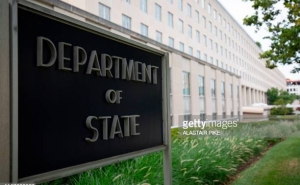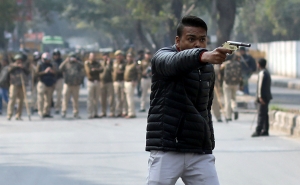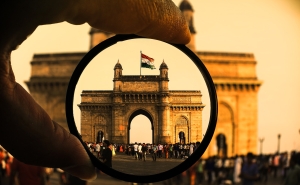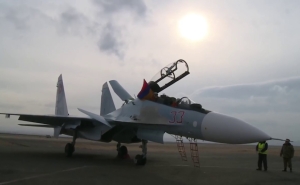India-Pakistan: The Seemingly Remote Conflict Is a Global Threat
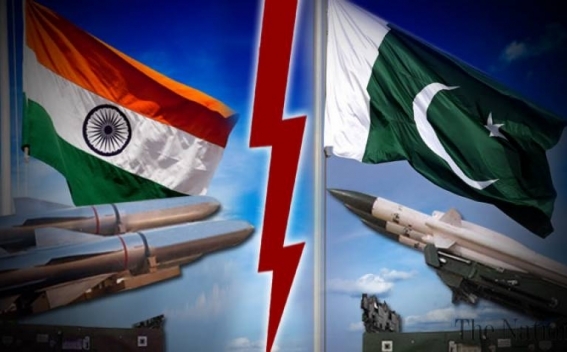
In 2002, Pakistan viewed the possibility of nuclear attack on India. Such a statement was made by Former President Pervez Musharraf , as quoted by TASS News Agency.
Confessing that nuclear war is totally unacceptable, former Pakistani President acknowledged that the situation was so tense that they spent several sleepless nights thinking of using nuclear weapon.
Relations between India and Pakistan have aggravated after the independence of the two states in 1947. The main reason for the conflict is the Kashmir region. As a result of the war of 1947-1949, about 2/3 of the territory passed to India and the rest to Pakistan. During the whole conflict, three major wars took place (1947-1949, 1965 and 1971). The situation on the border between Pakistan and India is still tense. In July, 11 people were killed and 18 were wounded during the shootings of Indian and Pakistani soldiers in Jamy and Kashmir, and about 4,000 people were forced to leave their homes. In response to this, the Indian side called on Pakistan to remember the end of the 1971 war, when India defeated Pakistan during the Third War and Bangladesh acquired independence as a result. Earlier, one of Pakistan's nuclear program experts said the country has up to 120 nuclear warheads.
Many experts say that tension between India and Pakistan can have catastrophic consequences. According to them, the main problem is how Pakistan will use its nuclear weapon and what it will accept as the beginning of the war by India. The second problem is that even if terrorist attacks in India might have nothing to do with Pakistan, it will still be difficult to prove to the Indian side. Moreover, this possible war will be catastrophic not only for the region but for the whole world as well. The analysis of the consequences of India-Pakistan possible war, made by US in 2008, states that the nuclear weapon used by the sides can lead to climatic changes, which will result in major agricultural problems and massive famine. So, the seemingly remote conflict between India and Pakistan does concern everyone. According to some experts, the likelihood of a war increases as India may reconsider its policy of non-using of nuclear weapon. In February of this year, India and Pakistan agreed to extend their Treaty on Reduction of Risks Caused by Nuclear Weapons, for a five-year term.
It is worth noting that India blames China for its contradictions with Pakistan. The former minister of defense of India stated that China uses Pakistan to attack the country and for this very purpose the Pakistani nuclear warheads.
The tension between China and India emerged in late June, when a group of Indian border guards crossed the Chinese-Indian border in the province of Sikim. After that, the Chinese side has repeatedly called on India to withdraw its troops from China, RIA Novosti reports. And despite the fact that the sides are still showing restraint, the harsh statements made by Beijing and Delhi create fear that short-range, but bloody hostilities between the two countries in 1962 can be repeated.
India and China have a border of 3,500 kilometers in total length, the majority of which is causing contradiction. According to the Chinese Foreign Ministry, the status of the Chinese-Indian border in the province of Sikim was confirmed in an agreement signed between China and the UK in 1890, and after the declaration of India's independence, the Government of the country has repeatedly stated in writing that there is no contradiction between the two sides. However, one should not forget that China is a key partner and weapon supplier of India's permanent enemy, Pakistan.
-
 17:08
17:08The regular session of the Anti-corruption Policy Council takes place in Jermuk
-
 15:05
15:05The Prime Minister sends congratulatory messages to the supreme leader of Iran and the President of Iran
-
 11:11
11:11Armenia sends earthquake aid to Turkey
-
 10:43
10:43Commemoration of the Pontiff St. Sahak Partev
-
 09:16
09:16Some roads are closed and difficult to pass in Armenia
-
 19:55
19:55Phone conversation of the Foreign Minister of Armenia with the U.S. Assistant Secretary of State for European and Eurasian Affairs
-
 18:30
18:30Prime Minister Pashinyan and President Khachaturyan meet
-
 18:20
18:20Ararat Mirzoyan with Co-Chairman of the OSCE Minsk Group of France Brice Roquefeuil
-
 17:01
17:01Humans could land on Mars within 10 years, Musk predicts
-
 16:45
16:45France, US urge 'immediate' end to Nagorno Karabakh blockade
-
 16:01
16:01Blockaded Nagorno Karabakh launches fundraiser to support quake-hit Syria
-
 15:59
15:59Earthquake death toll in Turkey rises to 18,342
-
 15:43
15:43Ararat Mirzoyan Held a Telephone Conversation with Sergey Lavrov
-
 15:06
15:06French president rules out fighter jet supplies to Ukraine in near future
-
 14:47
14:475 Day Weather Forecast in Armenia
-
 14:44
14:44President Vahagn Khachaturyan wrote a note in the book of condolences opened in the Embassy of Syria in Armenia
-
 14:20
14:20Azerbaijan’s provocations impede establishment of peace and stability – Armenian FM tells Russian Co-Chair of OSCE MG
-
 12:57
12:57France representation to OSCE: Paris calls on Azerbaijan to restore freedom of movement through Lachin corridor
-
 11:40
11:40Command of Kosovo forces highly appreciated preparation of Armenian peacekeepers
-
 10:16
10:16The United States withdrew from sanctions against Syria for six months the provision of assistance after the earthquake
day
week
month
Humidity: 19%
Wind: 1.03 km/h


